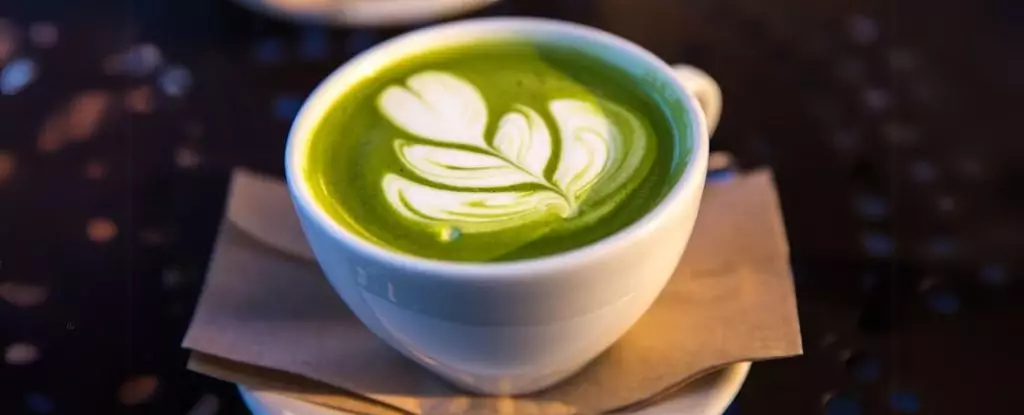Matcha is more than just a trendy beverage; it’s a cultural phenomenon steeped in history. Originating in China, this vibrant green powder made its way to Japan in the 12th century, thanks to dedicated Buddhist monks who recognized its potential to enhance meditation practices. The meticulous process of its production—where tea leaves are shade-grown for weeks—adds layers of complexity to both its flavor and nutritional profile. By boosting aspects like chlorophyll levels and amino acids, this method transforms ordinary tea into an extraordinary superfood. While other teas undergo fermentation or simple drying, matcha’s unique cultivation ensures that each cup is not just a drink, but a step into a historical practice that promotes mindfulness and serenity.
The Science Behind the Superfood
One cannot ignore the distinction between matcha and its cousins: traditional green and black teas. Although they all hail from the camellia sinensis plant, the preparation of matcha is what launches it into superfood status. In addition to its preparation methods leading to a rich depth of flavor, the whole leaf consumption in powdered form means you’re ingesting a concentrated dose of nutrients. This is where matcha claims its share of fame. High in polyphenols—powerful antioxidants—matcha is often touted for its broad array of health benefits, which range from anti-inflammatory effects to potential improvements in cognitive function.
However, a cautious approach is advisable when evaluating these claims. Much of the enthusiasm surrounding matcha is backed primarily by laboratory studies or animal research, which do not always mirror the complexities of human physiology. Despite promising assertions, we must tread carefully until more extensive clinical trials can provide clearer insights into its long-term effects.
Matcha vs. Coffee: The Caffeine Conundrum
When pitting matcha against coffee, the question often arises: which is better? Both beverages boast impressive health properties, yet they are worlds apart in their caffeine content and effects. With matcha, caffeine elevates alertness and sharpens focus, but its lower levels compared to coffee allow for a gentler energy boost without the harsh crashes or jitters often associated with a caffeine overload. This allows matcha to sidestep the potential pitfalls linked with higher caffeine consumption, such as insomnia or anxiety.
Additionally, matcha’s unique amino acid, L-theanine, serves as a calming agent that can temper the stimulating effects of caffeine. This makes matcha an excellent choice for individuals who crave sustained energy without the nervous edge. Conversely, coffee is often lauded for its extensive research backing and higher caffeine content, making it the more glamorous partner in the energy-boosting arena.
Health Risks and Nutritional Considerations
While both matcha and coffee have distinct advantages, it’s important to acknowledge the potential downsides. Both beverages contain tannins and polyphenols, which can inhibit iron absorption from plant sources. For those already managing low iron levels or adhering to a plant-based diet, this poses a risk. Therefore, timing is crucial; it’s advisable to consume these drinks away from meal times to maximize nutrient absorption.
Moreover, individuals with sensitive digestive systems might feel discomfort from both drinks, but matcha’s more balanced caffeine profile can sometimes serve as a more agreeable option. Its antioxidant-rich composition may provide substantial digestive benefits, particularly when consumed mindfully.
The Verdict: Personal Preference and Wellness Goals
Ultimately, the choice between matcha and coffee boils down to individual health goals and lifestyle preferences. For those who relish multiple cups of coffee throughout the day and thrive on its robust caffeine hit, coffee may be the way to go. However, matcha offers a compelling alternative for health-conscious individuals looking to reap the benefits of antioxidants without overwhelming their system.
As modern consumers increasingly embrace holistic health and wellness, the allure of matcha suggests it’s likely to remain a staple in many diets. Whether you find tranquility in a warm bowl of matcha during quiet moments or invigorate your mornings with a bold cup of coffee, both drinks provide exciting opportunities to enhance daily life and promote well-being. Both beverages have their aficionados and their own unique place in your wellness journey—what remains is the quest to find your perfect balance.

